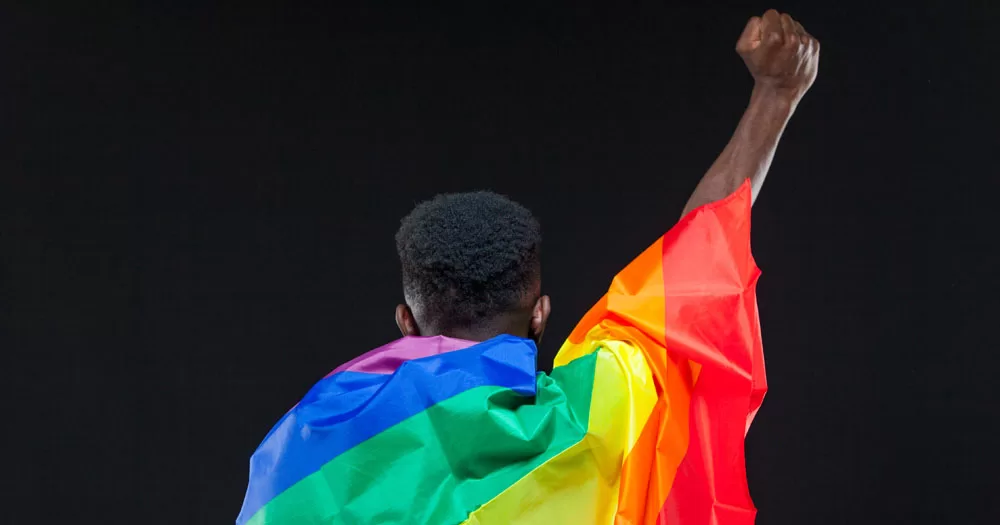October marks Black History Month, giving us an opportunity to recognise and celebrate the achievements and impact that the Black community has had in Ireland and abroad.
Origins of Black History Month
Although Black History Month is traditionally associated with the US, beginning in 1970, its origins go as far back as 1926 when a week was established to commemorate the birthdays of Abraham Lincoln and Frederick Douglass.
The tradition was eventually recognised in the United Kingdom in October 1987, marking the 150th anniversary of Caribbean emancipation.
Black History in Ireland
Today, Black History Month is marked globally, including here in Ireland, where celebrations are recorded as having started in 2010.
As well as paying tribute to slavery abolitionists such as Frederick Douglass and Charles and Sarah Lenox Remond, who visited Ireland on different occasions during the mid to late 1800s at the invitation of the Hibernian Antislavery Society, we also recognise the importance of Black Irish in mainstream culture such as Phil Lynott, Paul McGrath and more recently, Samantha Mumba and Ruth Negga.
View this post on Instagram
Checkered Past
As well as celebrating the achievements of the community, it is important that Black History Month serves as a reminder of how Ireland has failed our Black Irish family.
From the detention of children of interracial relationships in mother and baby homes to the abhorrent Direct Provision system which remains in place today, Ireland is by no means innocent of oppression and racism.
Whilst we still have a long way to go in uncovering and recognising our Black heritage, it is vital that we record these wrongs in order to learn from them in the future.
LGBTQ+ Community
With the escalation in homophobic and transphobic legislation in many African, Middle-Eastern and US states, Ireland has been receiving an influx of LGBTQ+ refugees.
Many LGBTQ+ people seeking International Protection in Ireland are detained in the Direct Provision system. This may result in them being assigned accommodation conflicting with their gender and/or being placed in abusive situations with homophobic, biphobic and transphobic people.
As well as this, whilst persecution under sexual orientation or gender is considered grounds for seeking International Protection, the requirement to prove this to authorities can be extremely intrusive and traumatising, leading to added pressures on LGBTQ+ people.
View this post on Instagram
Queer Racism
Coupled with this, many Black and people of colour (POC) report frequent instances of racism from within the LGBTQ+ community. From challenges in being accepted to microaggressions on dating apps to verbal and physical abuse in clubs and bars, integrating into the queer scene can be difficult.
Black Queer Irish
Despite these institutional and social obstacles, Ireland’s Black queer community is thriving. Many of the most vocal opponents to the Direct Provision system and the International Protection process identify as LGBTQ+, including Bulelani Mfaco, spokesperson for MASI (Movement of Asylum Seekers in Ireland) and Beryl Ohas, journalist and cultural mediator with the International Organization for Migration.
Black Queer Creatives
Black queer Irish are also at the forefront of the burgeoning Black Irish art scene. Some of the artists leading the charge include music producer and artist Renn Miano, musician and poet Jess Kavanagh, poet and playwright Felispeaks, writer and curator Diane Bamineke, journalist and filmmaker Zainab Boladale, artist and activist Ozaro Azams, and visual artist and filmmaker Venus Patel.
Not only are each of these creatives achieving notoriety in their own practices, but among them, many have been behind forging spaces and collective projects for other emerging black creatives such as Origins Eile, Fried Plantains Collective, DiaXDem, Queer Black Book Club and many more.
View this post on Instagram
With the Black Irish community steering the way in which their voices are used, Ireland is assured a richer and more vibrant history for generations to come, so let’s make sure we support and bolster our Black Irish LGBTQ+ family to make sure these histories can never be erased again.
© 2023 GCN (Gay Community News). All rights reserved.
Support GCN
GCN is a free, vital resource for Ireland’s LGBTQ+ community since 1988.
GCN is a trading name of National LGBT Federation CLG, a registered charity - Charity Number: 20034580.
GCN relies on the generous support of the community and allies to sustain the crucial work that we do. Producing GCN is costly, and, in an industry which has been hugely impacted by rising costs, we need your support to help sustain and grow this vital resource.
Supporting GCN for as little as €1.99 per month will help us continue our work as Ireland’s free, independent LGBTQ+ media.
